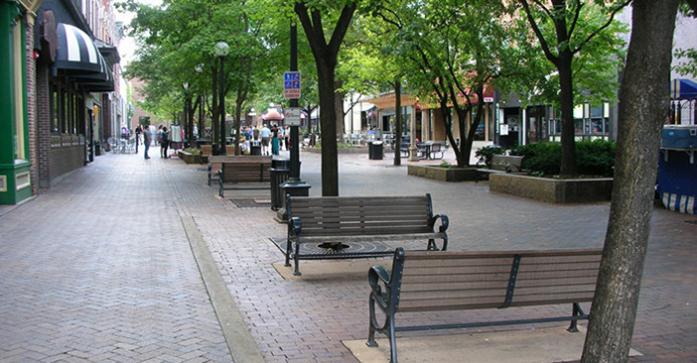One brief walk through the Pedestrian Mall is all it takes to provide an example of the necessity for affordable housing in Iowa City and Johnson County.
Last week, The Daily Iowan reported, a panel of individuals in various positions, including representatives for nonprofits and city commissions, met to discuss the need for affordable housing in Iowa City. The panel was put together by the local Human Rights Commission.
Bronis Perteit, the director of Client Advocacyf Services for the Domestic Violence Intervention Program was quoted in last week’s DI article, “We have many families within our community trying to re-establish themselves and start anew. Trying to live off minimum wage as a family and afford safe and sustainable housing is nearly impossible.”
The DI Editorial Board believes that affordable housing is a pressing issue for not only Iowa City but all of Johnson County and the state of Iowa — and has been for some time. As previous DI articles and editorials have explained, as Iowa City begins to gentrify — naturally or artificially — the importance of affordable housing seems to have diminished. One goal of Iowa City Affordable Housing Location Model is at odds with gentrification — the principle of Inclusionary Zoning. The Editorial Board believes, however, that Inclusionary Zoning is an appropriate and necessary measure in increasing the availability of affordable housing.
According to the policy paper, “Increasing Affordable Housing in Iowa City,” prepared in 2013 by the University of Iowa Public Policy Center, housing costs have become a major concern of citizens of Iowa City. “[In Iowa] housing costs have increased more rapidly than household income,” the paper said. Between 2000 and 2012, the percentage of renter households that were “cost-burdened” went up 11 percent to 45 percent.
The paper notes that at the time, “the affordable housing that currently exists in Iowa City is financed primarily by federal dollars and charitable donations.” This point leads to the idea of Inclusionary Zoning. At the panel last week, the topic was brought up and debated by housing developers claiming that the construction of affordable housing is difficult because profit margin takes a huge hit in the name of decreasing rent.
While it would be unfair to place the entire burden of affordable housing on developers, it is important that these companies accept some of the responsibility. According to several sources, Inclusionary Zoning is a policy that mandates housing developers to build a certain percentage of new developments specifically for the affordable housing with the hope that such policy will lead to more inclusive and diversified communities.
Recently, an Inclusionary Zoning policy for the Riverfront Crossings District of Iowa City is gaining steam as it approaches a vote for mandate, according to the DI.
As the aforementioned policy paper states, Inclusionary Zoning is a policy that can be adjusted and adapted over time to meet the needs and required benefits of a specific community. Given the flexibility of such legislation and the apparent need for affordable housing in the Iowa City area, such a policy seems like a logical mandate.
Of course, there will be added burden to the profit margins of housing developers in the area, but with work between local government, nonprofit charitable organizations, and the developers, widespread and need-fulfilling affordable housing is not unrealistic.



